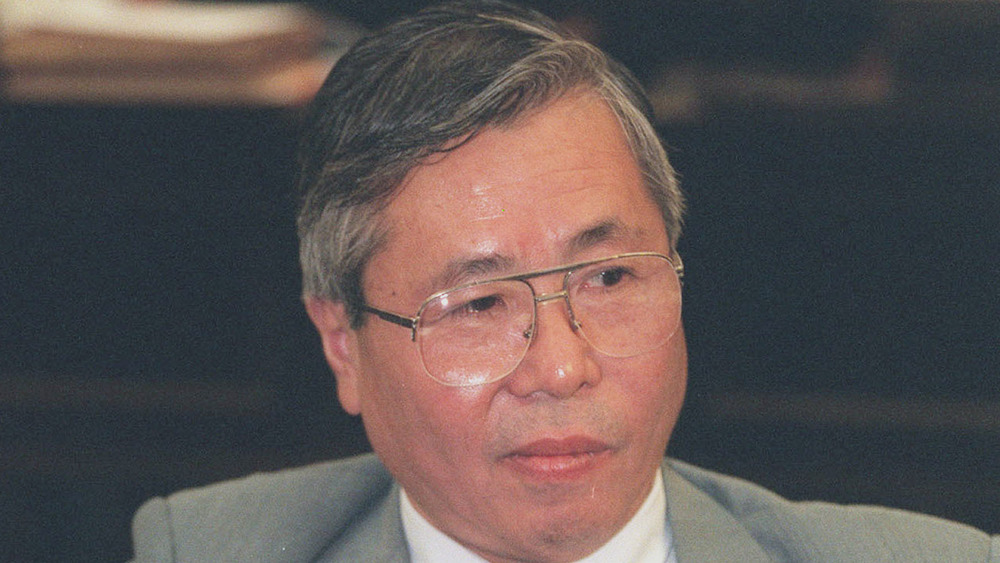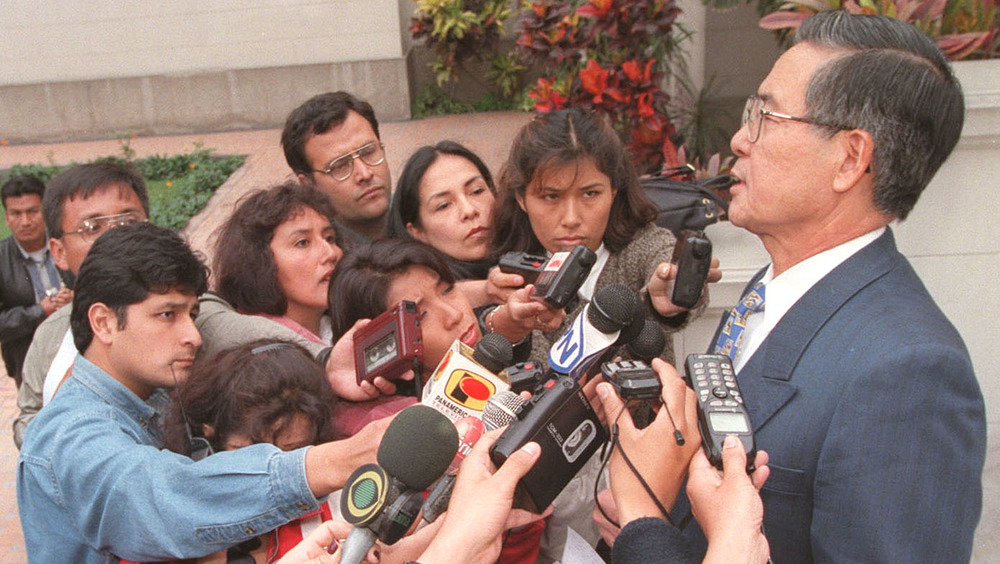The Truth About Alberto Fujimori's Political Crimes
Alberto Fujimori may have become president of Peru in 1990 through democratic means, but he spent the next 10 years in power ruling with an iron fist that would put him in the same company as many of the authoritarian leaders of the Middle East. Among his supporters, Fujimori was the leader who saved the country from economic collapse and domestic terrorism that had plagued Peru for too long. To his opponents, however, he was a dictator who trampled the nation's democratic institutions and committed serious crimes – including murder — to hold onto power.
During his first two terms, Fujimori cracked down on two violent insurgencies, which resulted in an estimated 69,000 deaths, according to the BBC. He also handled a hostage crisis at the hands of Marxist rebels belonging to the Tupac Amaru Revolutionary Movement, who overtook the Japanese ambassador's residence in Lima in 1996-97, according to The New York Times. Following a four-month standoff, Fujimori sent in commandos to take the building. All 14 rebels were killed and nearly all the 72 hostages were rescued.
Fujimori won a third term amid controversy, but his government soon failed after his closest advisor was found on tape bribing a congressman. As a result, Fujimori fled to Japan, where he even tried to win a seat in parliament, according to Reuters, and announced his resignation. Peru's legislature rejected Fujimori's resignation and formally voted him out of office.
Peru's government takes action and Fujimori unravels
That action was followed by allegations that Fujimori had been involved in, if not ordered, death squads. Although Japan refused to extradite Fujimori, he was arrested in 2005 after traveling to Chile and was extradited to Peru. Officials charged him with the murder of 25 people and two kidnappings.
In 2009, at the age of 70, Fujimori was found guilty and sentenced to 25 years in prison, leading most Peruvians to believe that's where he would spend the rest of his life. However, in 2017, after some health concerns, Fujimori was granted a pardon by President Pedro Pablo Kuczynski after doctors said his illness was incurable, adding that prison represented a "grave risk to his life," according to The Guardian.
Fujimori, then a 79-year-old, appeared less defiant and more appreciative — perhaps even remorseful. "I recognize that I have let down others. Those I ask for forgiveness from the bottom of my heart," Fujimori said, according to UPI. Peru's Supreme Court overturned the pardon in 2018, however, ruling that crimes against humanity cannot be pardoned and noted that doing so was "a slap in the face to victims of human rights abuse." Britannica relates that Fujimori returned to prison after a January 2019 medical board review. Now, Fujimori's daughter, Keiko Fujimori, who is running for president of Peru, says she will move to pardon her father should she be elected in the 2021 election, according to U.S. News & World Report.

